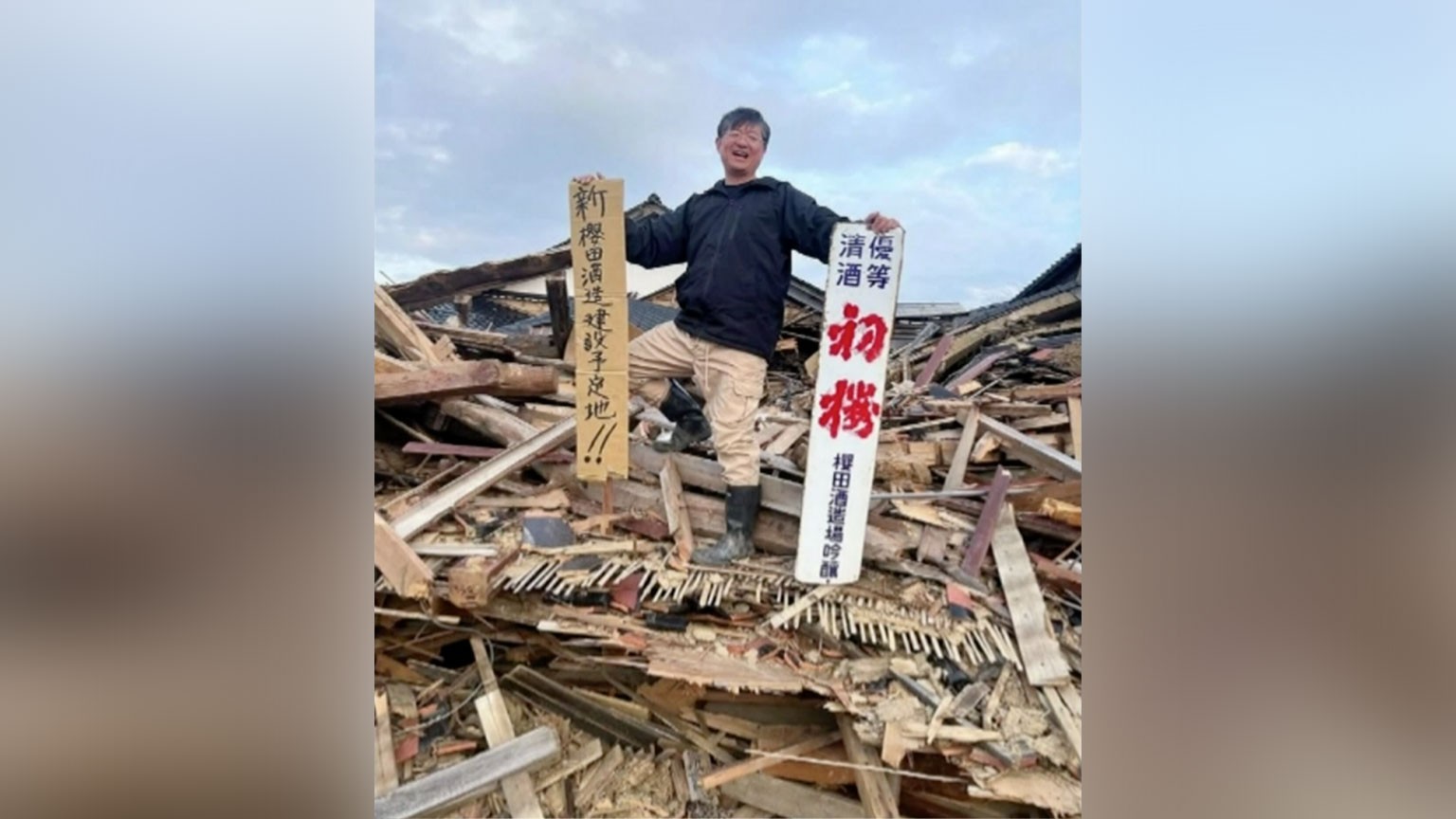"It seemed there was nothing left. I thought it would be impossible to restart... I thought there was no way to do it."
Sakurada Hiroyoshi, the owner of Sakurada Brewery, is recalling the scene of devastation that greeted him after the magnitude-7.6 quake on January 1. The site where his family-run company had been producing sake since 1914 had been reduced to rubble.
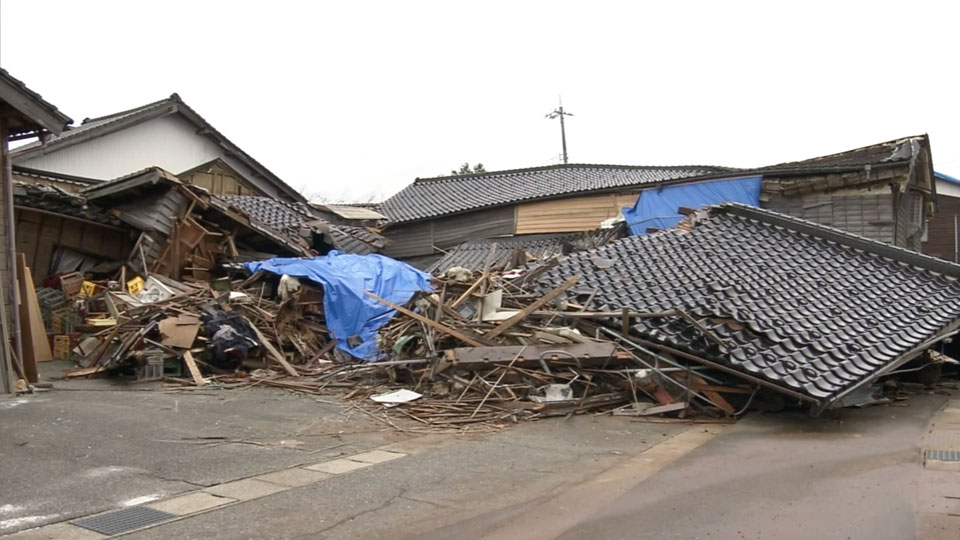
The disaster seemed to spell the end for the brewery in Suzu City, on the Noto Peninsula in Ishikawa Prefecture. Sakurada's only consolation was that some of the rice inventory — the main ingredient in sake making — had survived. So had about 1,000 bottles of sake.
While living in a shelter, Sakurada continued to sell those bottles to shops in the prefectural capital, Kanazawa, which had escaped the worst of the damage. The vendors were longtime customers, and didn't mind that the bottles were a little dusty: due to water shortages, Sakurada wasn't able to clean them properly.
"Sakurada is one of the leading breweries in the Noto Peninsula," said one of those vendors. "I will keep supporting them."
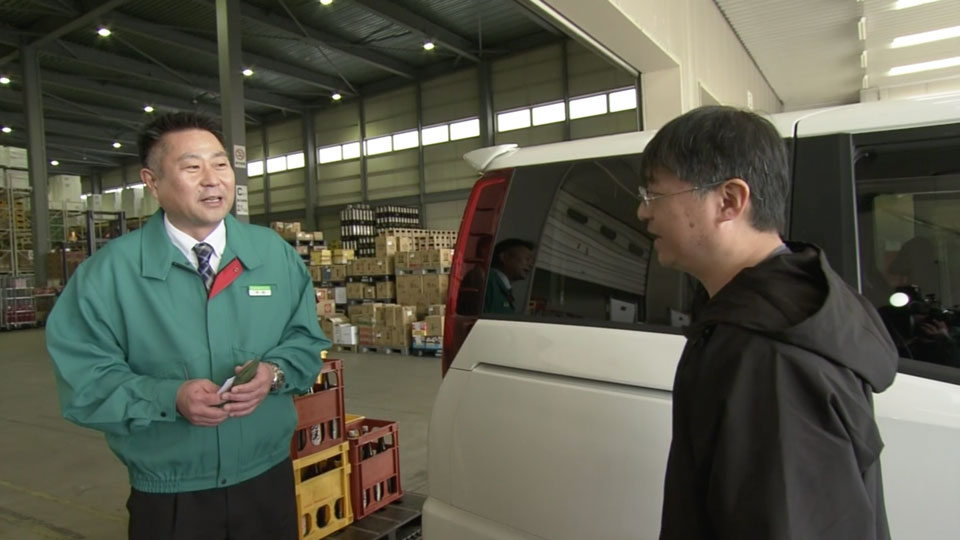
It didn't take long until a fellow brewery stepped in to offer help. Shata Brewery in Hakusan City, to the south of Kanazawa, told Sakurada he could bring his rice there and start making sake again.
"We should help each other in times of need," says Shata Kazunari, the brewery's president. He and Sakurada have been good friends for three decades. "I want him to continue making Noto sake."
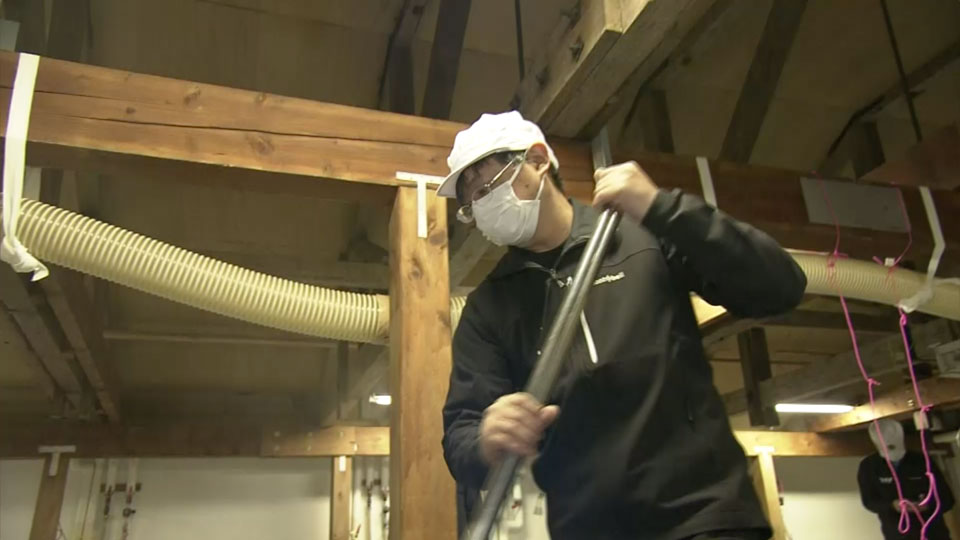
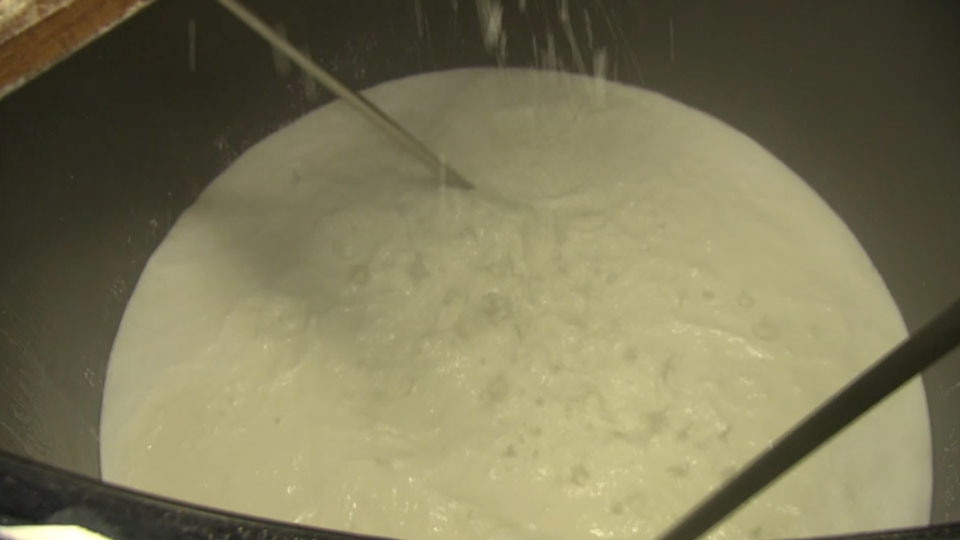
Sakurada began production two months behind schedule. He hopes he can start checking the taste in May.
Despite suffering such a huge loss, Sakurada has reason to feel hopeful about the future. His oldest son, Shintaro, a university student, has resolved to take over the family business.
"The quake destroyed our house and forced us to stop making sake. I'm like... if we don't fight now, when will we?" Shintaro says. "I have lots of concerns, but the quake kind of helped make up my mind."
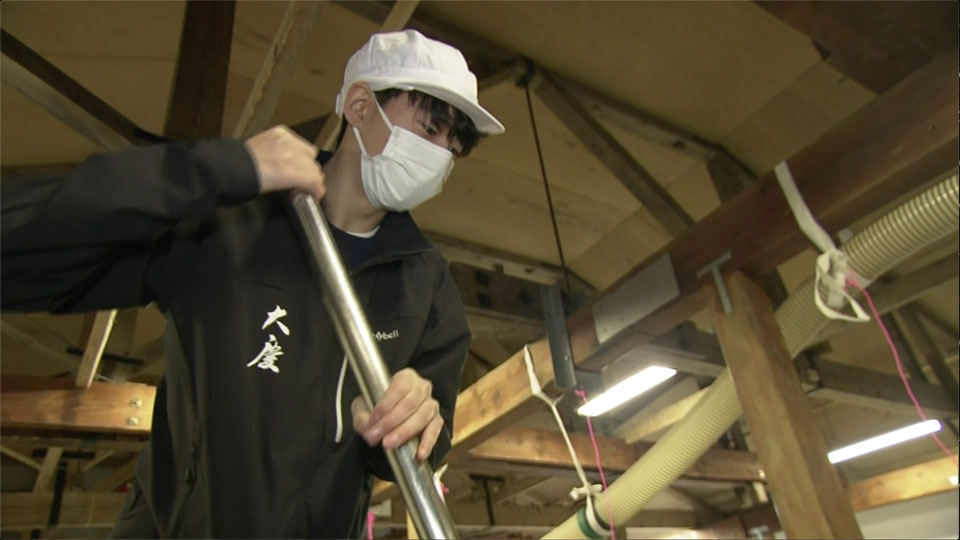
Sakurada knows that the road ahead won't be easy. It will cost about 300 million yen, or nearly 2 million dollars, to set up new production facilities.
"I don't want to have any regrets," he says. "People have been so supportive, I feel like I want to start making sake as soon as possible — at my new brewery, of course."
